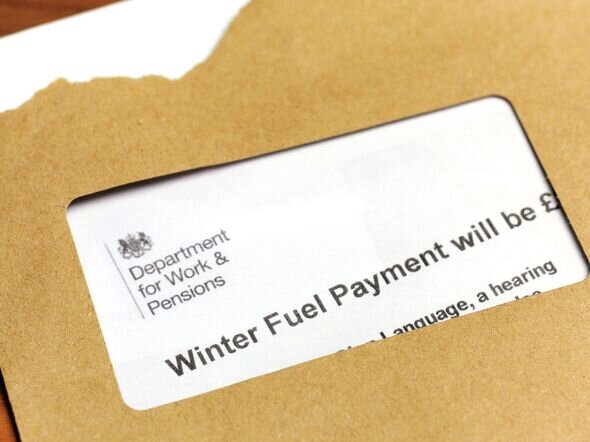Let’s Break This Down Together...
Sorting small business taxes can feel like a puzzle. There are different rules, deadlines, and terms that make it tricky to know what’s what.
In this guide, we’ll walk through the main taxes you might face, how to use a tax calculator effectively, and which expenses you can claim. We’ll also touch on planning tips, compliance essentials, and when to call in expert help.
By the end, you’ll feel more confident about what you owe, how to stay on top of it, and how to keep more money in your pocket. Let’s dive in.
Introduction to Small Business Taxes
Navigating small business taxes is a crucial part of running a successful company, whether you’re a sole trader, self-employed, or operating as a limited company. Understanding the basics, like how to calculate corporation tax, income tax, and national insurance contributions, can make a significant difference in how you manage your business finances.
Knowing how much income tax you owe, how to calculate corporation tax, and when to file your self assessment tax return helps you stay compliant and avoid unexpected bills. Key terms such as tax liability, corporation tax rate, and total taxable income are essential to grasp. Your tax liability is the total amount of tax you’re required to pay based on your business’s profits and income.
The corporation tax rate applies to limited companies and determines how much of your profits go to HMRC. Total taxable income includes all the money your business makes, minus allowable expenses and reliefs. Whether you’re self employed or running a limited company, understanding the interplay between tax and national insurance is vital.
Staying on top of your tax and insurance obligations ensures your business remains financially healthy and compliant. Filing your self assessment tax return accurately and on time is just as important as knowing how much tax you need to pay. By familiarising yourself with these concepts, you’ll be better equipped to manage your business’s tax responsibilities with confidence.
What taxes do small businesses need to calculate?
As a small business owner, you’ll need to calculate several different taxes depending on your business structure. Sole traders must work out their Self-Assessment Income Tax and National Insurance contributions. Limited company directors need to calculate Corporation Tax, dividend tax, and personal taxes.
For Corporation Tax, companies with profits below £50,000 pay a reduced rate of 19%, while those with profits above this threshold pay the main rate of 25%. If your profits fall between £50,000 and £250,000, marginal relief applies, gradually increasing your tax rate from the reduced rate to the main rate. It's important to know your company's financial year, as this determines the period for which you calculate Corporation Tax and the deadlines for payment and filing.
If your turnover exceeds £85,000, you’ll also need to register for and calculate VAT. Getting these figures right is essential to determine your tax liabilities and avoid penalties and interest charges.

Limited Company Taxation
For limited companies, understanding your tax obligations is key to keeping your business on track. The main tax you’ll encounter is corporation tax, which is calculated on your company’s profits after allowable expenses have been deducted. Knowing how to calculate corporation tax and when to pay corporation tax is essential for avoiding penalties and keeping your finances in order.
Each limited company must file a company tax return for every accounting period, detailing income, expenses, and how much corporation tax is due. It’s important to keep accurate records of your monthly income and expenses, as these figures feed directly into your tax calculations. Using a tax calculator can help you estimate your tax liability and plan for upcoming payments.
In addition to corporation tax, limited companies may also need to consider national insurance contributions for directors and employees, as well as capital gains tax if the company sells assets. Claiming all allowable expenses from office costs to professional fees can reduce your taxable profits and lower your overall tax bill.
Taking advantage of tax reliefs and understanding capital allowances can further improve your company’s tax efficiency. By staying organised and making use of available tools, limited companies can manage their accounting, calculate taxes accurately, and ensure timely payments to HMRC.
What is a small business tax calculator?
A small business tax calculator is a digital tool that estimates your tax liabilities based on your income, expenses, and business structure. Unlike generic calculators, these specialised tools account for specific allowances, reliefs, and thresholds relevant to your business. They can handle multiple tax types including Income Tax, Corporation Tax, and VAT.
For example, a business owner can use the calculator to estimate their Corporation Tax liability before the end of the financial year, helping them plan for upcoming costs.
These calculators help you budget for tax payment obligations throughout the year by allowing you to plan and track each payment. They’re particularly useful for quarterly planning and preventing unexpected bills.

How to use a tax calculator effectively
Start by gathering accurate income and expense figures from your accounting records. The more precise your input data, the more reliable your tax calculations will be. Update your calculations quarterly to stay on top of your tax obligations. This regular check-in helps you spot trends and plan for upcoming payments.
Use your calculator to compare different scenarios, like taking more salary versus dividends. Structuring your income to stay within the basic rate tax band can be particularly tax efficient, as it minimises your exposure to higher tax rates. The calculator allows you to compare gross salary versus dividends, helping you see the impact on your overall tax liability.
Different salary levels, or salaries, will affect your tax calculations and the amount of tax and National Insurance you pay. The calculator also helps you estimate your take home pay after all deductions, so you know exactly what you’ll receive. Understanding your home pay is crucial for effective financial planning, as it reflects your actual net income after taxes and deductions.
I once helped a client save over £3,000 by using a tax calculator to optimise their salary-dividend split. The hour spent running different scenarios paid for itself many times over.
Common small business tax deductions to include
Don't forget to factor in all eligible business expenses when using your tax calculator. Office costs, including a portion of home bills if you work from home, are fully deductible.
Travel expenses related to business activities can be claimed, including mileage at HMRC's approved rates. Equipment purchases may qualify for capital allowances, reducing your tax bill.
Professional fees for accountants, solicitors, and other business services are tax-deductible. So are marketing costs, insurance premiums, and staff costs if you employ people.

Tax Planning and Efficiency
Effective tax planning is one of the smartest ways small businesses can protect their profits and ensure long-term success. By understanding which allowable expenses you can claim, you can reduce your tax liability and keep more of your hard-earned money. Making the most of tax reliefs, such as capital allowances, can also help lower your overall tax bill.
Using a tax calculator regularly allows you to estimate your self assessment tax and plan for payments throughout the year. This proactive approach helps you avoid surprises and manage your cash flow more effectively. Filing your self assessment tax return accurately and on time is crucial, as is keeping detailed records of all business expenses.
Seeking professional advice from an accountant can make a big difference, especially when it comes to complex tax issues or maximising your tax efficiency. Accountants can help you identify additional reliefs, ensure compliance, and provide guidance tailored to your business’s unique needs.
By combining smart use of calculators, careful tracking of expenses, and expert advice, small businesses can optimise their tax position and focus on growth.
Tax Compliance and Avoidance
Staying compliant with tax laws is a fundamental responsibility for all small businesses. Tax compliance means accurately reporting your income, paying the correct amount of tax, and meeting all filing deadlines. Failing to comply can result in penalties, interest charges, and even investigations by HMRC.
While it’s natural to look for ways to reduce your tax liability, it’s important to distinguish between legal tax planning and risky tax avoidance schemes. Tax avoidance involves using aggressive or artificial strategies to minimise tax, which can attract scrutiny from HMRC and lead to serious consequences for your business.
To ensure your business remains compliant, keep thorough records, use reliable tax calculators, and seek professional advice when needed. Avoid shortcuts or schemes that promise unrealistically low tax bills. By focusing on legitimate ways to manage your taxes, you’ll protect your business’s reputation and financial health.
Remember, HMRC is there to enforce tax laws and support businesses in meeting their obligations. Staying informed and proactive is the best way to ensure your business meets all its tax responsibilities.

When to seek professional tax advice
While tax calculators are brilliant for day-to-day planning, some situations call for expert help. Major business changes like incorporation often have complex tax implications. If you’re approaching the VAT threshold, professional advice can help you time your registration appropriately. International business activities typically create additional tax complications.
Contractors who are dissatisfied with their current accounting support may benefit from switching to a more reliable accounting service to improve financial management and avoid issues like overpayment or slow responses.
Property investments, inheritance matters, and retirement planning all have tax angles that benefit from specialist knowledge. A good accountant often saves you more than they cost.
Choosing a trustworthy and comprehensive accounting service is essential for small businesses to ensure convenience, reliability, and tailored support for all their tax and financial needs.
Important tax deadlines for small businesses
Self Assessment tax returns must be filed by 31st January each year. These deadlines are based on the end of the tax year, so make sure to check which tax year your return covers. Payments are due on the same date and 31st July for payments on account.
Limited companies must file Corporation Tax returns within 12 months of their accounting period end. However, tax is payable 9 months and 1 day after the period end.
VAT returns are typically filed quarterly, with exact dates depending on when you registered. Missing these deadlines can result in penalties, so mark them clearly in your calendar.
Final Thoughts
Small business tax calculations don't need to be overwhelming when you have the right tools at your disposal.
Regular use of a tax calculator helps maintain financial clarity and prevents unexpected tax bills. While calculators provide valuable guidance, complex situations may still require professional advice.
Staying proactive with your tax planning is one of the best investments you can make in your business's financial health.











